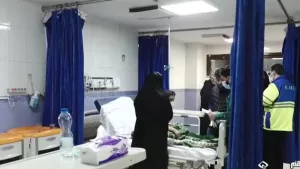On Monday, February 6, a 7.8 magnitude earthquake struck regions in both Syria and Turkey. In the catastrophe, 24 million people were affected and at least 50,313 deaths have been confirmed. Infrastructure was destroyed, including houses, hospitals, schools and public buildings. The property damage is now estimated at roughly $85 billion and the total damage is yet to be discovered. As soon as the news broke out, countries from all over the world such as Pakistan, the United States, and members of the European Union scrambled to see how they could donate and provide assistance to the affected countries.
However, upon receiving help and foreign aid there is a differentiating factor between these two countries. Syria has a long list of 21 countries with whom they have severed diplomatic ties. Some of these are Turkey, Ukraine, Australia, Belgium and Canada. These are states that have made the decision not to collaborate with the Syrian regime to address their ongoing conflict.
The Syrian Civil War
The conflict in Syria has been one of the most tumultuous conflicts that derived from the Arab Spring in 2011. The war struck out after protesters demanded the Assad regime (led by Bashar al-Assad) be removed. Protesters were violently suppressed. On the eve of the uprising, Syrian society remained highly repressive, with increasingly conspicuous inequalities in wealth and privilege. A personalist dictatorship was installed, yet almost collapsed two times in 2013 and 2015. The government has been backed by Iran, Russia and various foreign terrorist organizations such as the Lebanese Hezbollah. The government is still in power to this day.
Because of the support of Syria from terrorist groups, the country’s membership in “The Organization of Islamic Cooperation” was suspended. This led to countries such as Turkey severing their ties with the state and many others soon followed like Canada in 2012.
A potential diplomatic opening
Now, thanks to the devastating earthquake catastrophe, there is a silver lining. Due to the need for support and assistance, Syria has been in contact with many Arab states. Israel, for instance, has no diplomatic ties to Syria and has even fought several wars against the state. Despite this, the country recently released a statement in which Prime Minister Benjamin Netanyahu said he approved a request for humanitarian aid for Syria. Furthermore, for the first time in a decade, Assad visited Oman a step forward in reestablishing relations. On a related note, Belgium, an EU member state, has also made an initiative to show support for Syria by stating that they are ready to help through humanitarian assistance programs.
This new era that Syria is experiencing is being referred to as “Earthquake Diplomacy” by the CEO of Gulf State Analytics, Giorgio Cafiero. As he stated, “regional players like the UAE, Oman, and Algeria, which have been opposed to efforts aimed at isolating Damascus will make the argument that easing such isolation is necessary for addressing the humanitarian crises that Syrians are suffering in the aftermath of this horrific disaster.”
In addition, over the weekend of the 17- 19 of February, as stated by VOA news, “Saudi Foreign Minister Faisal bin Farhan said the Arab world was looking for a new approach to Syria to respond effectively to that country’s humanitarian crises, including the recent earthquake.”
In light of these ties being mended, a delegation of senior Arab parliamentarians formed by the heads of Jordan, Iraq, Egypt, Lybia, and other Arab countries traveled to Syria to discuss donations and support, as a sign of solidarity from other Arab States. This has all been a remarkable reaction to the natural disaster and could open Syria’s doors to new possibilities after being shunned for more than 12 years.
Featured image by: Reuters. Retrieved via Middle East Eye.







